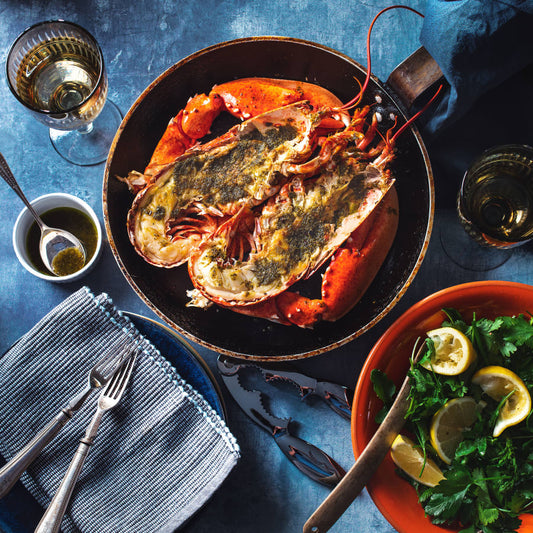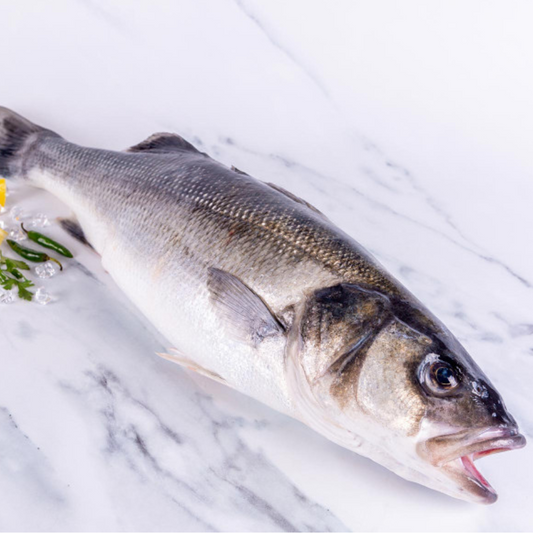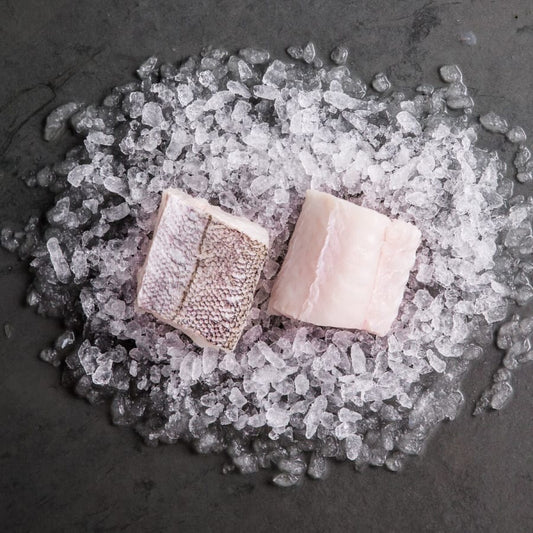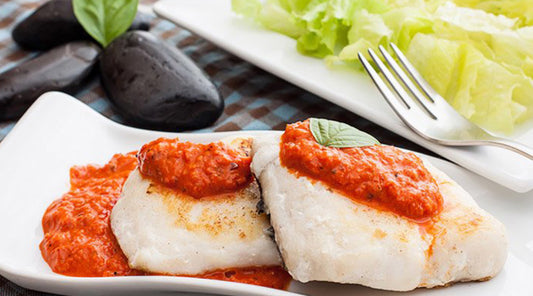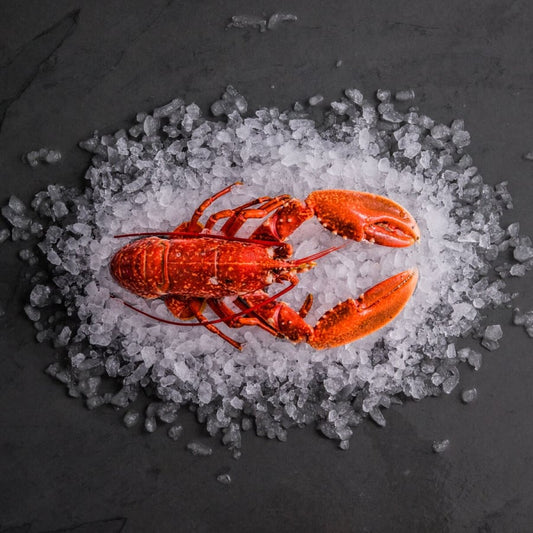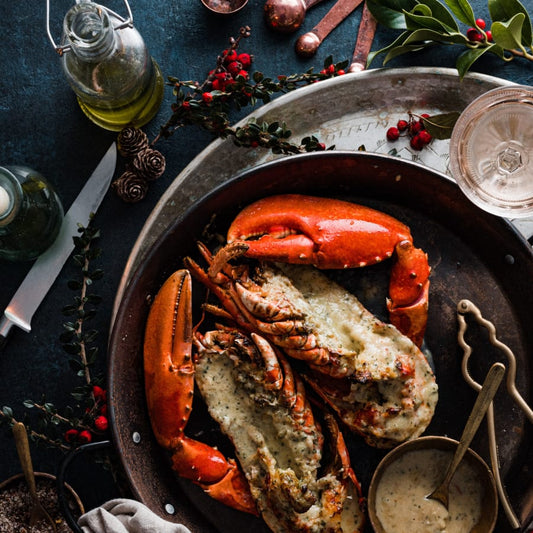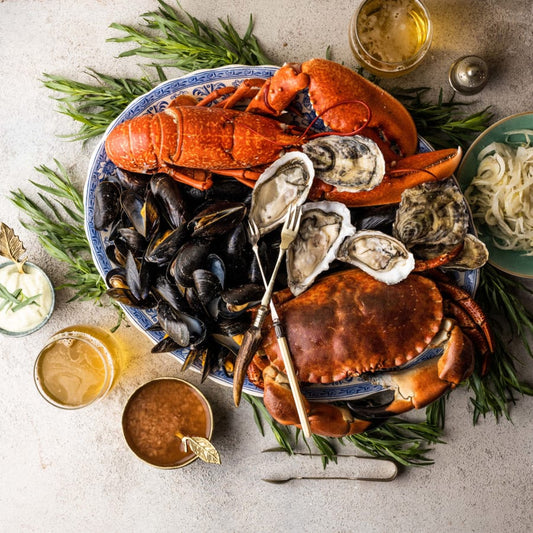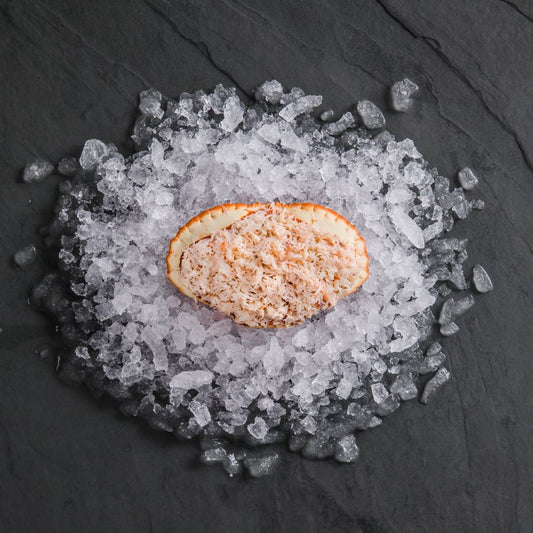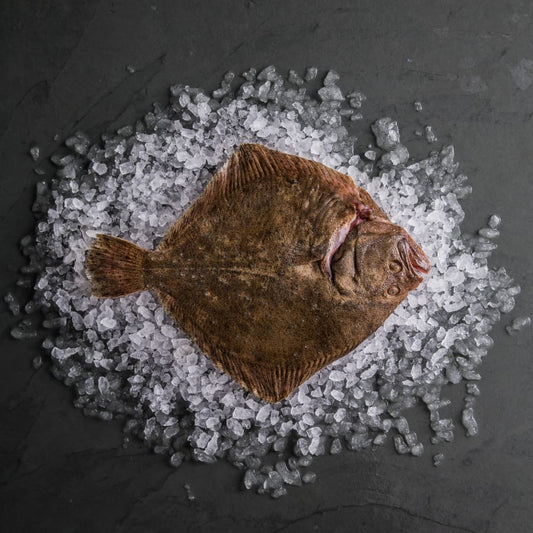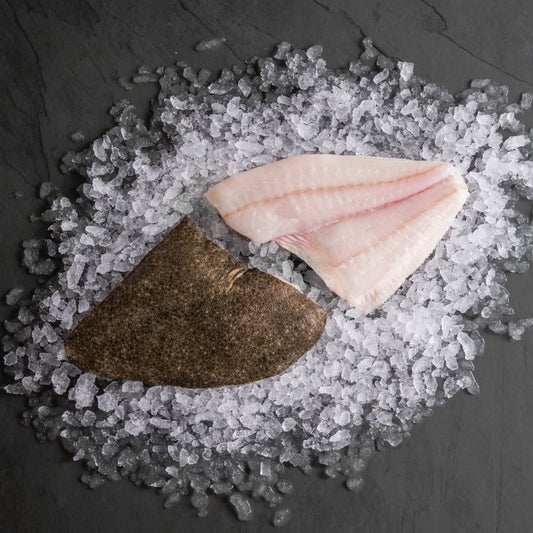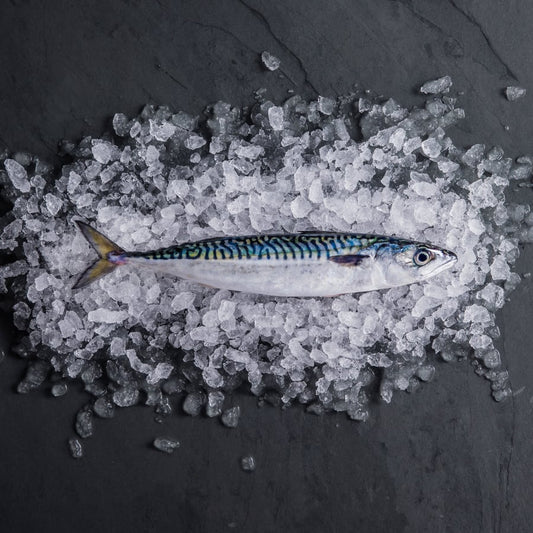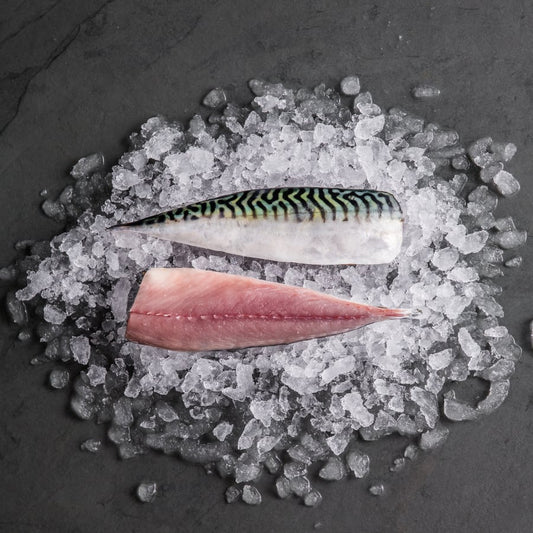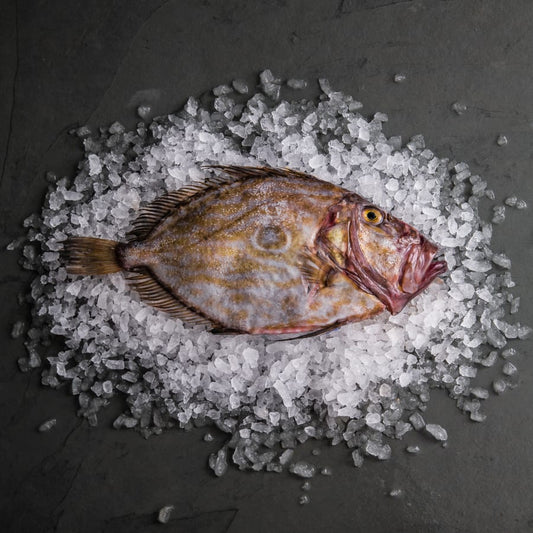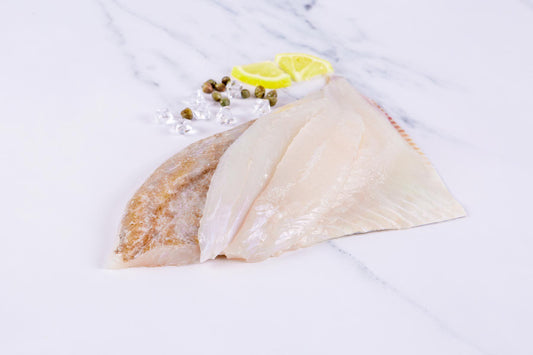
The Best Fresh Fish
Discover sustainable fresh fish from today's fish markets, fully prepared to your own requirements and delivered to your door.
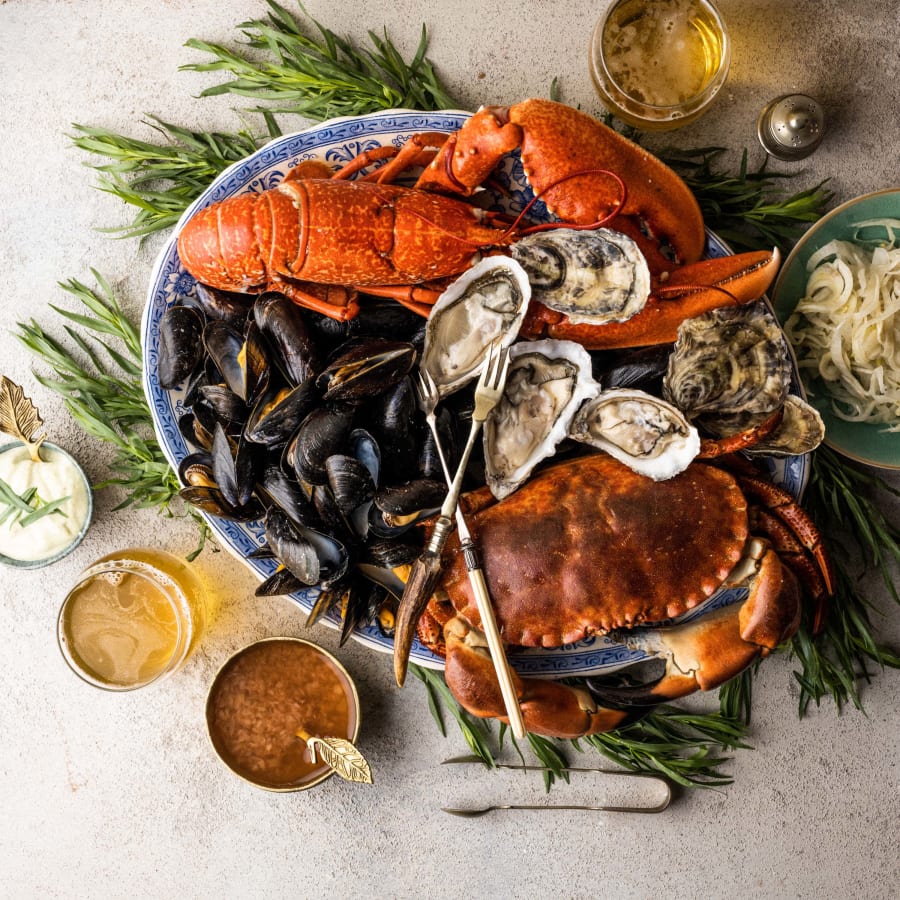
Sustainable Shellfish
The shellfish caught off the Cornish coast are some of the best shellfish found anywhere in the world, with an exquisite flavour due to crystal clear waters and low pollution.
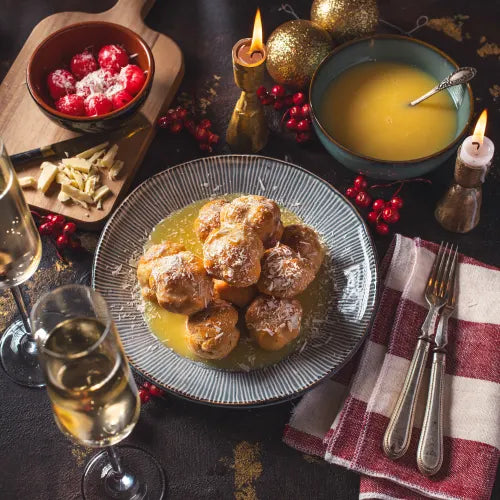
Your Seafood Kitchen
Select your finest home made stocks and sauces to delicious desserts all created in our Chef's kitchen.
Fresh Off The Boat
-
SPLIT CORNISH LOBSTER
Regular price From £34.95 GBPRegular priceUnit price / per -
SEA BASS - WILD, HOOK & LINE CAUGHT 1.2-1.6KG
Regular price £47.95 GBPRegular priceUnit price / per£49.95 GBPSale price £47.95 GBPSale -
HAKE PORTIONS (X2)
Regular price £15.75 GBPRegular priceUnit price / per -
SALMON PORTIONS (2 X 140 - 160G)
Regular price £15.95 GBPRegular priceUnit price / per -
 Sold out
Sold outCornish Lobster Wellington.
Regular price £45.00 GBPRegular priceUnit price / per -
WHOLE CORNISH LOBSTER
Regular price From £34.75 GBPRegular priceUnit price / per -
LOBSTER THERMIDOR HAMPER FOR 2
Regular price £91.95 GBPRegular priceUnit price / per -
FRUITS DE MER SELECTION SINGLE
Regular price £52.95 GBPRegular priceUnit price / per -
CORNISH CRAB (DRESSED)
Regular price £12.95 GBPRegular priceUnit price / per -
Mackerel 1KG
Regular price £18.95 GBPRegular priceUnit price / per -
JOHN DORY (500-750G)
Regular price £31.95 GBPRegular priceUnit price / per£29.95 GBPSale price £31.95 GBP
A New Future for Seafood from Cornwall.
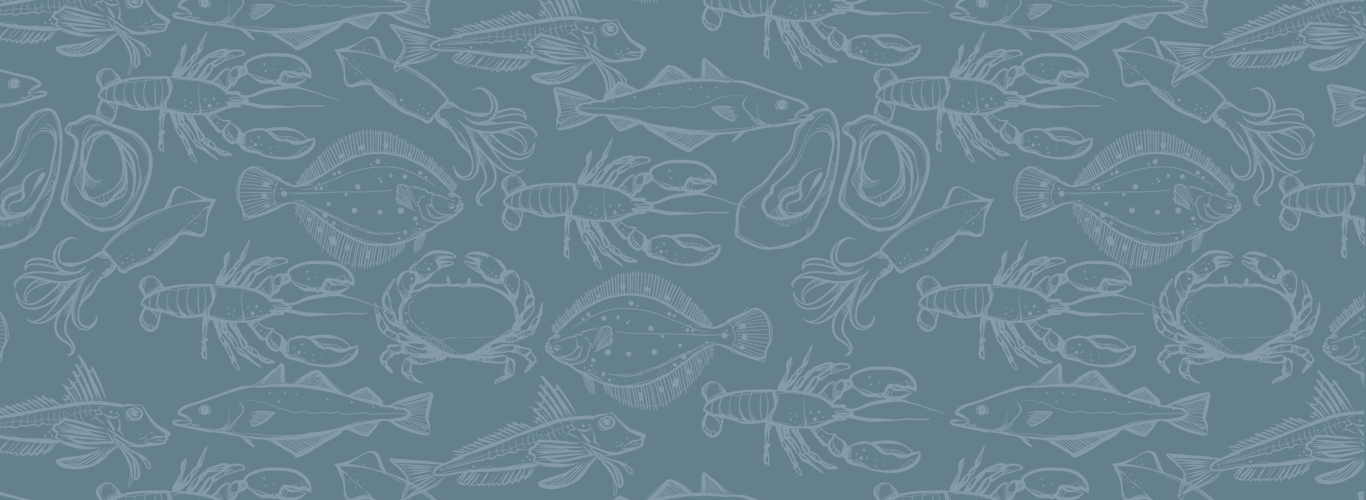
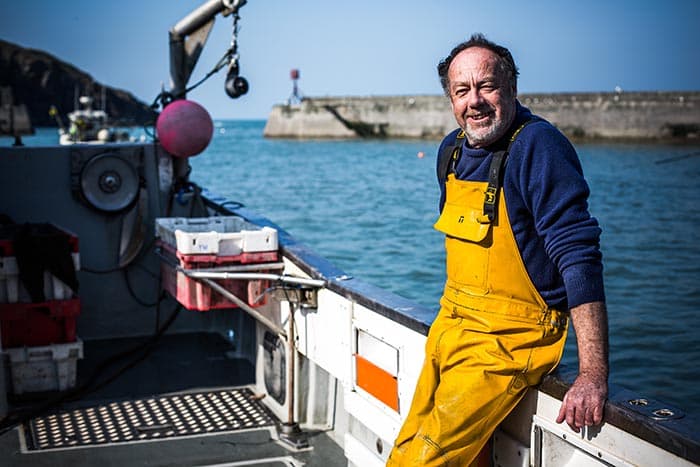
Ethical & Sustainable
At Fish for Thought, we are on a mission to change the way people enjoy fish and shellfish forever. In order to achieve this, we recognise that we need to lead the way when it comes to sustainable and ethical sourcing.
This is one of our fundamental guiding principles, and we use it to challenge the status quo to help us make the right decisions.
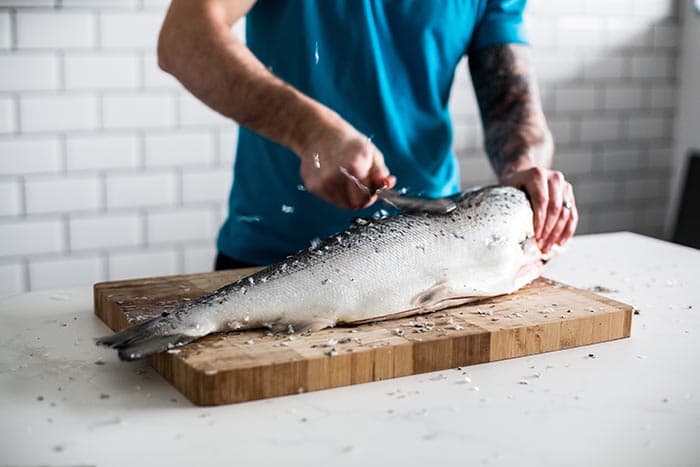
No catch guarantee
At Fish for Thought we pride ourselves on going the extra mile and doing our best every day, for all of our customers. I am proud of our hard working and dedicated team, all of who care passionately about what we do.
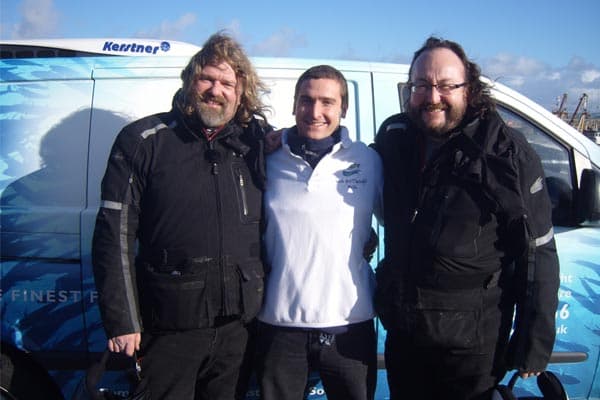
We've been on the box
Over the years, we have been privileged to be involved in a number of TV programmes that you may have seen, involving some of our very own Food Hero’s. These include; The Hairy Bikers Food Tour of Britain, Young Fishmonger of The Year and Food Unwrapped.
10% off on your 1st order. Spend over £50 for FREE delivery!
Join our community for exclusive offers and latest updates on new products and Seafood kitchen dishes
Making seafood recipes easy
View all-

PAN FRIED SEA BASS WITH PRESERVED LEMONS
Dish Type: Main Serves: 4 Preparation time: 10 mins Cooking time: 20 mins Difficulty: Medium Ingredients: 8 x Sea bass Fillets or whole fish Extra virgin Olive Oil Balsamic glaze Moroccan Preserved Lemons Rocket leaves Ciabatta bread Rinse the...
PAN FRIED SEA BASS WITH PRESERVED LEMONS
Dish Type: Main Serves: 4 Preparation time: 10 mins Cooking time: 20 mins Difficulty: Medium Ingredients: 8 x Sea bass Fillets or whole fish Extra virgin Olive Oil Balsamic glaze Moroccan Preserved Lemons Rocket leaves Ciabatta bread Rinse the...
-

LINGUINE VONGOLE
Dish Type: Main Serves: 2 Preparation time: 10 mins Cooking time: 10 mins Difficulty: Easy Set up a pan of boiling salted water, add the linguine and cook until just tender, stirring occasionally. Whilst the linguine is...
LINGUINE VONGOLE
Dish Type: Main Serves: 2 Preparation time: 10 mins Cooking time: 10 mins Difficulty: Easy Set up a pan of boiling salted water, add the linguine and cook until just tender, stirring occasionally. Whilst the linguine is...
-

SMOKED HADDOCK SOUFFLÉ
This recipe makes an ideal party lunch or evening dinner party starter. Dish Type: Main Serves: 4 Preparation time: 20 mins Cooking time: 55 mins Difficulty: Difficult Ingredients: Seafood Ingredients 8 oz sliced smoked salmon (225g) 10...
SMOKED HADDOCK SOUFFLÉ
This recipe makes an ideal party lunch or evening dinner party starter. Dish Type: Main Serves: 4 Preparation time: 20 mins Cooking time: 55 mins Difficulty: Difficult Ingredients: Seafood Ingredients 8 oz sliced smoked salmon (225g) 10...
-

TUNA CATAPLANA
Tuna and Clam Cataplana Dish Type: Main Serves: 4-6 Preparation time: 20 mins Cooking time: 20 mins Difficulty: Difficult Ingredients: 4 medium/large potatoes 1 onion (chopped) 4 tuna steaks (allow 1kg) 1 Kg Clams 1 or 2 garlic cloves...
TUNA CATAPLANA
Tuna and Clam Cataplana Dish Type: Main Serves: 4-6 Preparation time: 20 mins Cooking time: 20 mins Difficulty: Difficult Ingredients: 4 medium/large potatoes 1 onion (chopped) 4 tuna steaks (allow 1kg) 1 Kg Clams 1 or 2 garlic cloves...
Customer reviews
-
"Your fish is far better than any locally sourced"
"We have been ordering our fish from you for many years: firstly when we lived in Hampshire then when we moved to Scotland and then when we moved to Somerset. You have consistently supplied excellent fish that has been far better than any locally sourced."
Barbara, Bridgewater
-
"The freshest we have had for absolutely ages"
"We had salmon, hake and haddock which arrived speedily at the time you promised. The container was excellent and although I was nervous of getting fish online, I have to say it is the best thing we have done. We love fish and it is probably the freshest we have had for absolutely ages and is a pleasure to eat."
Jane, Manchester
-
"The fish was all super fresh!"
"Yes, the fish all arrived in perfect condition early on Friday morning. The smoked mackerel, salmon, halibut and wild sea bass were all delicious - bream and plaice now in the freezer - and I have received many compliments from my guests over the weekend. Like to think some of the compliments were for my cooking(!) but the fish was all top quality and super fresh. Have passed your details to one of my friends as well. Will definitely order from you in the future!"
Jane, Radlett

